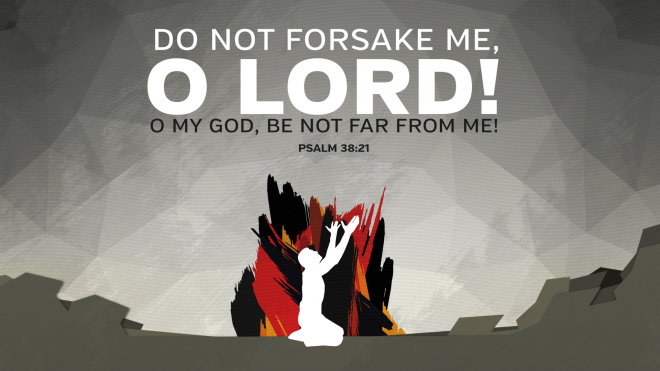
The Book of Psalms is a book of poetry, which was used as the “prayer” of “service” book in the ancient Israelite Temple. Composed of 150 poems, Rev. Eugene Peterson writes that, they form are a “prayer book that gives us a language adequate for responding to the God who speaks to us.” They can teach us how to pray. Psalm 38 is a prayer of lament, words uttered by someone suffering from…a disease, an ailment, a situation, persecution, fear, maybe loss. It’s not included in the lectionary cycle of Biblical texts for worship through which we move every three years. Maybe you’ve never heard it before? In the poem, the poet, rooted in her suffering the poet portrays God as seemingly persecuting, punishing or pursuing her. The prayer presents a dark portrait of a God who seems vengeful, intent on dishing out punishing tit-for-tat, who seems distant. And yet….
the poem ends with a prayer for hope, insisting upon waiting, the poet abandons herself in hope that God will….save, heal, act.
Our women’s group is reading the book Run with the Horses by Eugene Peterson. It addresses the book of Jeremiah and contains this passage on imagination and God’s presence in the ordinariness of life that speaks to the haunting words of Psalm 38.
The great masters of the imagination do not make things up out of thing air; they direct our attention to what is right before our eyes. They then train us to see it whole – not in fragments but in context, with all the connections. They connect the visible and the invisible, the this with the that. They assist us in seeing what is around us all the time but which we regularly overlook. With their help we see it not as commonplace but as awesome, not as banal but a wondrous. For this reason the imagination is one of the essential ministries in nurturing the life of faith. For faith is not a leap out of the everyday but a plunge into its depths.
When we approach everyday life are we expect God to be there? Do we imagine God as an adversary?; coach?; cheerleader?; manager?; inactive observer?; punishing parental figure?
Questions for the practice of Examen & Contemplation
- What strikes or shimmers for you in this passage?
- When have you heard this psalm before? What do you think the Psalm is saying?
- How / when have you felt angry at God or persecute by God?
- How have you experienced “salvation” from God in your own life? When? How did it happen, and/or end up?
- What does psalm 38 say to you about your own difficulties, and the hard times you go through?
- How does this psalm feed your soul?